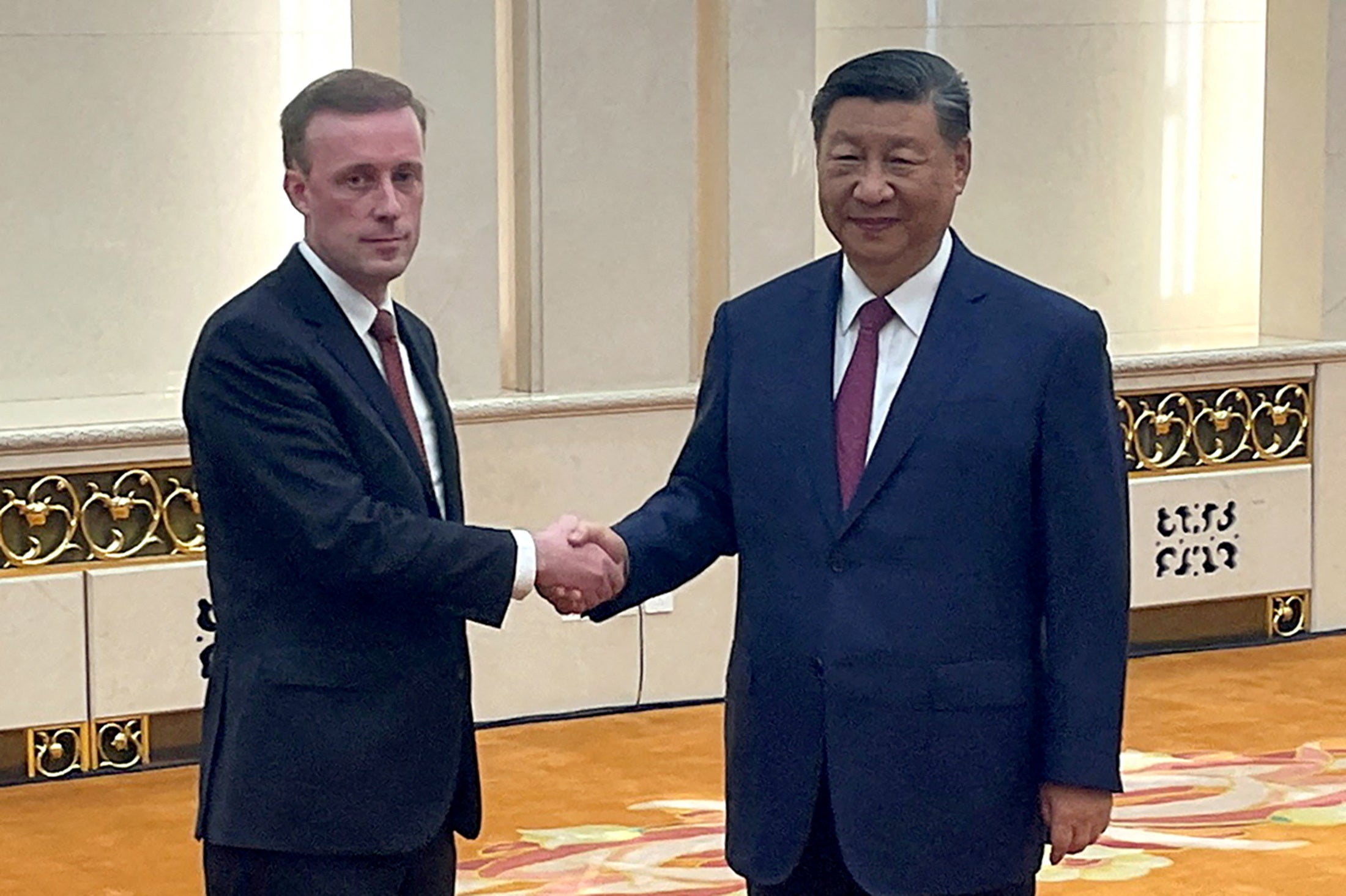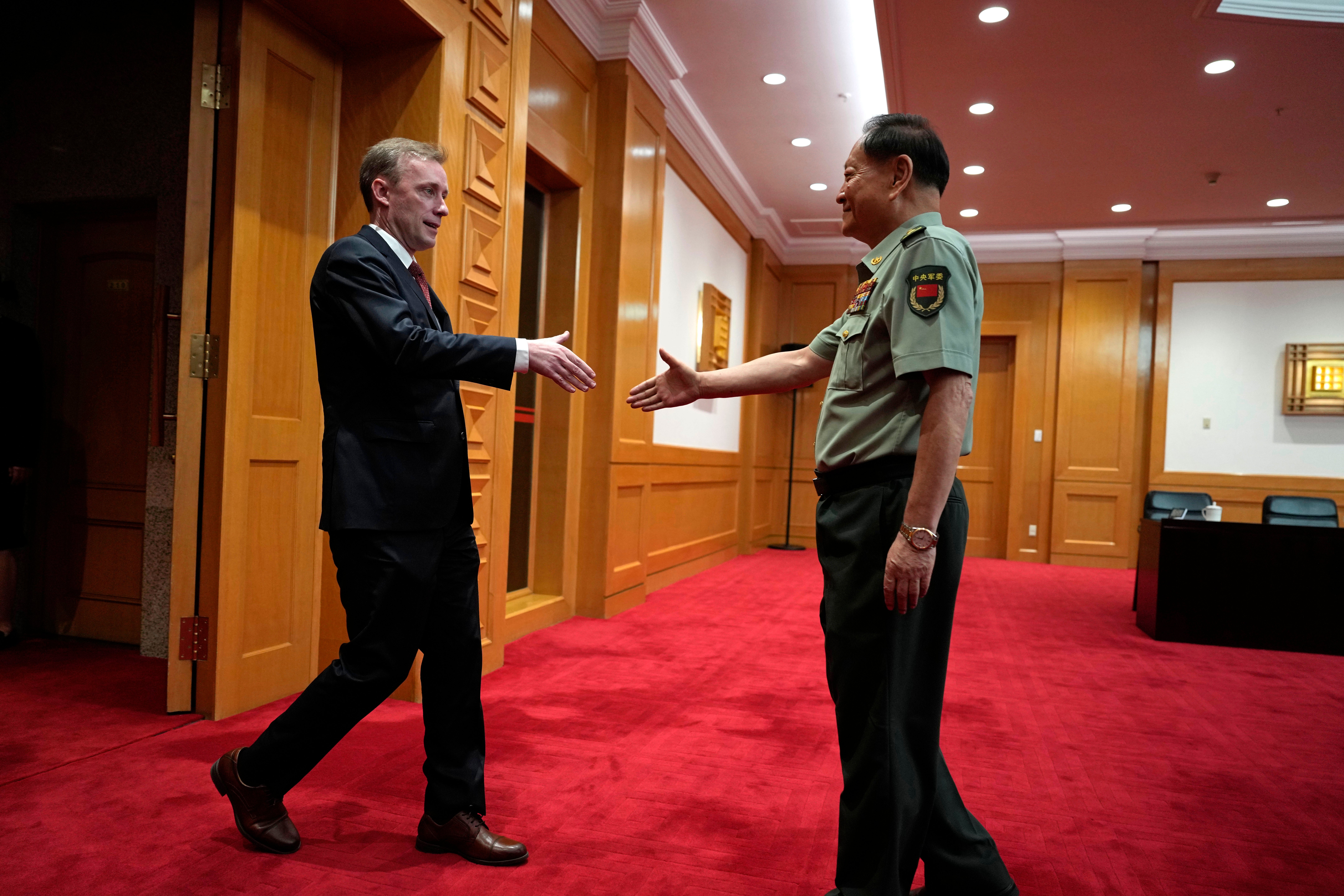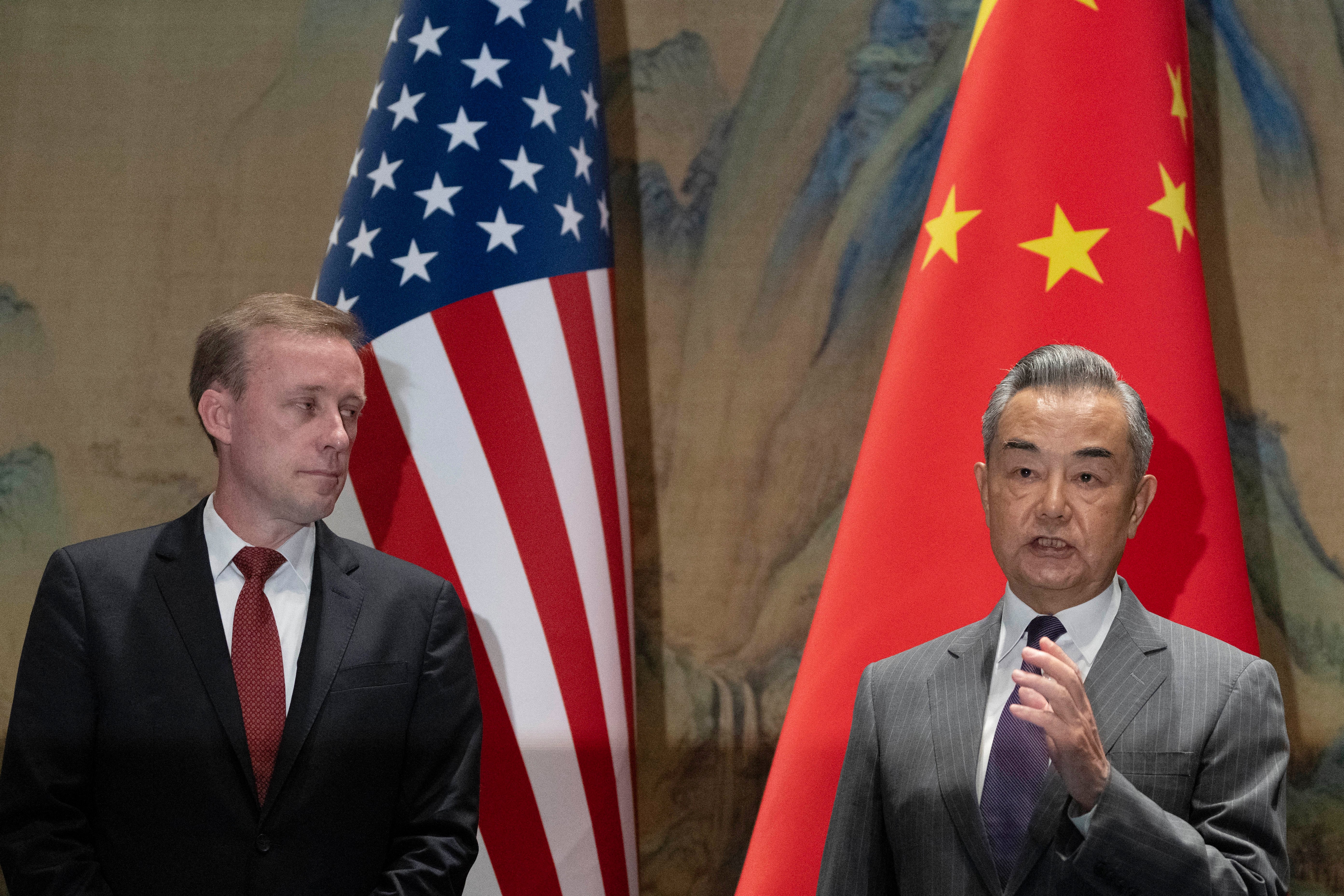Surprise Beijing meeting raises hopes of Biden-Xi talks
Biden’s national security adviser Jake Sullivan sat down with Xi Jinping after a rare meeting with a Chinese general believed to have the ear of the president
Xi Jinping has held a surprise meeting with US national security adviser Jake Sullivan, the culmination of a three-day Beijing visit designed to lay the groundwork for direct talks between the Chinese leader and outgoing US president Joe Biden.
Meeting the top Biden administration official in the Great Hall of the People, Mr Xi said China expects the US to take the “right” view of Beijing’s development as an “opportunity rather than a challenge”.
The US readout of the Xi-Sullivan meeting said the two sides welcomed “ongoing efforts to maintain open lines of communication, including planning for a call between President Biden and President Xi in the coming weeks”.
Mr Sullivan’s trip also included a rare meeting with Mr Xi’s most senior military adviser, the first of its kind in eight years, as well as with foreign minister Wang Yi.
And it concluded with generally positive signalling in statements from both sides as they aim to improve on the current frosty state of relations between the world’s two largest economies. Mr Xi and Mr Biden have not spoken face to face since a summit in November, and last spoke on a phone call in April.

Mr Sullivan said President Biden was “committed to responsibly managing this consequential relationship to ensure that competition does not veer into conflict.”
The Chinese president said the foremost issue between the two countries was a question of perception, asking for find an answer to the question: “Are China and the United States rivals or partners?”
Mr Xi said China’s “commitment to the goal of a stable, healthy and sustainable China-US relationship remains unchanged”.
He also expressed “hope that the US side will work in the same direction with China, view China and its development in a positive and rational light, see each other’s development as an opportunity rather than a challenge,” the readout said.
Danny Russel, a vice president at the Asia Society Policy Institute in New York, said the meeting between Mr Sullivan and Mr Xi was “particularly important” because Mr Sullivan was seen by the Chinese leadership as “a direct extension” of the US president.
He said Mr Sullivan‘s messaging was viewed as “coming straight from Biden”.
The issue of Taiwan loomed large in all Mr Sullivan’s different meetings with the Chinese leaders.

A Chinese foreign ministry readout said that Mr Sullivan told Mr Wang that the US “does not support ‘Taiwan independence’, and it does not seek conflict with China”.
“The one-China policy of the United States has not changed, and it has no intention to use Taiwan as a tool to contain China,” it added.
China claims sovereignty over Taiwan, an island off the mainland that has been democratically self-governed since a civil war in the 1940s. The US has for decades maintained a policy that only officially recognises the government of China, while at the same time enjoying strong unofficial relations and trade links with the island.
The US is also treaty-bound to support Taiwan in the event that China tries to take control of the island by force. What that support would look like in practice is kept
Before meeting Mr Xi, Mr Sullivan met Zhang Youxia, the vice-chair of China’s central military commission. The general is the highest-ranking military official to have met with anyone from the Biden administration.
Mr Sullivan said “it is rare that we have the opportunity to have this kind of exchange” and underscored “the need for us to responsibly manage US-China relations.”
General Zhang opened his statement by saying: “Your request to meet with me shows the value you attach to military security and the relationship between our militaries.”
He also, however, accused the US of “collusion” with Taiwan’s government.
Mr Wang told the visiting US official that, in China’s view, Taiwan’s independence presented the greatest threat to stability in the immediate region.

“China demands that the United States stop military collusion between the US and Taiwan, stop arming Taiwan and stop spreading false narratives about Taiwan,” the Chinese defence ministry statement said.
But the meeting with the general led to an agreement for bilateral military talks at the theatre command level “in the near future” and the two sides had held “regular military-military communications over the past 10 months”, a White House statement said.
Mr Sullivan said he stressed the “importance of maintaining peace and stability across the Taiwan Strait”.
Subscribe to Independent Premium to bookmark this article
Want to bookmark your favourite articles and stories to read or reference later? Start your Independent Premium subscription today.


Join our commenting forum
Join thought-provoking conversations, follow other Independent readers and see their replies
Comments